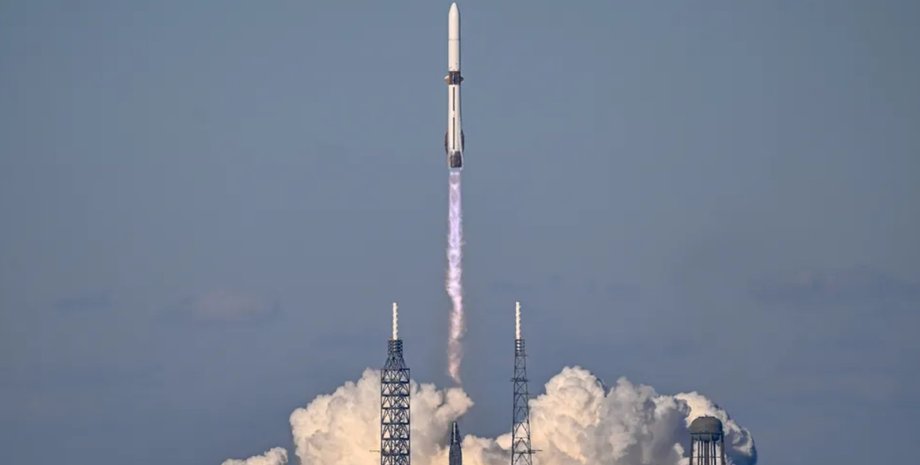
 By Natali Moss
By Natali Moss
It was only the New Glenn rocket's second flight into space, and the first time its first stage successfully landed on a landing pad in the Atlantic Ocean. The Blue Origin rocket sent NASA's first exploratory mission to Mars in five years called ESCAPADE, writes Space. In Focus. Technology has its own Telegram channel.
Subscribe so you don't miss the latest and most exciting news from the world of science! In January 2025, the New Glenn rocket made its first flight into space, but then the first stage of the reusable rocket failed to land successfully, as Focus has already written. Now, Blue Origin has achieved success when the first stage of New Glenn successfully landed on a landing pad in the Atlantic Ocean 600 km from the launch site of the rocket.
The New Glenn rocket can become a direct competitor of the Falcon 9 rocket from the SpaceX company in the market for launching satellites into orbit. But during the second flight, it performed a very important task for NASA. The launch of the New Glenn rocket went according to plan. About three minutes after launch, the second stage of the rocket with the payload flew further into space, and the first stage turned back.
About half an hour after launch, two spacecraft, named Blue and Gold, from NASA's ESCAPADE mission were deployed into orbit. This mission is designed to explore Mars. For the first time in 5 years, NASA sent spacecraft to study the Red Planet. The Perseverance rover and the Ingenuity helicopter were sent to Mars for the last time in 2020. The two vehicles of the ESCAPADE mission went to the L2 Lagrange point of the Earth-Sun system.
This is a region of gravitational stability at a distance of about 1. 5 million kilometers from our planet. The ESCAPADE mission will stay there for a year before returning to Earth in November 2026. With the help of the Earth's gravity and their engines, the vehicles will be able to gain the required speed and enter the required trajectory for the flight to Mars. The NASA mission will arrive at the Red Planet in September 2027 and both devices will enter orbit around Mars.
The mission is designed for approximately 1 year of work. The ESCAPADE spacecraft will study how Mars, which once had liquid water on its surface, lost its atmosphere over time to become the arid Red Planet we know today. As Fokus already wrote, scientists have discovered signs of the existence of ancient underground water on Mars. This indicates that the Red Planet may have been inhabited for a longer period than previously thought.










All rights reserved IN-Ukraine.info - 2022